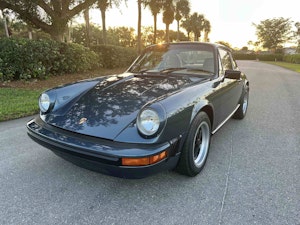Media | Articles
Estate Planning 101
Unfortunately, death, like taxes, is one of the few inevitabilities in life. So, while I hate to be the bearer of bad news, the fact remains that we’re all going to die. This fact in conjunction with the rising values of classic cars in today’s market and the new found legitimacy of our hobby does beg us to take a more critical look at the disposition of our collections upon our death. In short, to consider our cars in our “estate plan.”
The primary purpose of an estate plan is to distribute your assets according to your wishes after your death. Other purposes may be to reduce or eliminate estate (or other taxes), to provide income for surviving loved ones, to benefit a favorite charity, etc. The core of any estate plan is a will: Everyone should have a will, no matter how few their assets or how low their income. Remember, if you die without a will, the legal system, not you, will decide who gets your assets (your stuff) and who is on the hook for your liabilities (your bills).
It’s important to establish in advance of your death what your goals are for the collection; that is, whether to maintain in perpetuity in a museum or as an endowed collection, to bequeath (leave) it to someone, or to have it sold and the money given to a specified beneficiary.
If your goal is to preserve your collection, it’s very important to talk to an attorney specializing in trusts and estate planning (ideally with a focus on philanthropy) to put the necessary structure(s) in place. This should be done as soon as possible, as failing to do so could otherwise split up the collection in the event of an untimely death.
If you wish to see your vehicles left to loved (or unloved) ones, this is easy enough to specify in one’s will. Otherwise, if you would like to see your loved ones benefit from the value of the vehicles after your death, your will should specify a trusted dealer, auction house or broker who has already agreed to help sell them. You should also, before your death, sign an agreement with this broker/auction house/dealer outlining either what they will pay (by reference to an accepted value guide) or a commission schedule (for consignment or auction sales) to make the cars “go away” and that the net proceeds will go to the parties specified in the will. This will help to ensure that your loved ones aren’t faced with attempting to deal with car related issues in their time of grief, and that they realize the maximum value for the vehicles with the minimum risk from lowballers and scam artists.
Marketplace
Buy and sell classics with confidence
Estate taxes are another matter entirely. If the total value of your estate (all your assets minus all your liabilities) exceeds a certain amount when you die ($1.5mm for 2004), your estate will be taxed by the federal (and perhaps state) government. There are many strategies for reducing or deferring estate tax liability, but they’re outside the scope of this article. If your net worth even approaches this threshold, you’d be well-advised to consult an attorney specializing in estate planning with deep experience in estate tax issues.
There’s nothing that can be done to prevent our own deaths. Through careful planning, though, we can ensure that our death is no more painful for our loved ones than it needs to be and that our cars (or collections) live on according to our wishes and are never a negative burden for our heirs.
Alex Leventhal is an attorney and car collector living in New York City. His early practice experience included the representation of new-car dealers and dealer groups engaged in complex transactions, as well as other merger and acquisition business. Alex currently owns a Ferrari Berlinetta Boxer 365 GT4 and a Dino 308 GT4, along with an Aston Martin V-8 Vantage and other European collector cars. He’s also director of the Aston Martin Club of North America.










